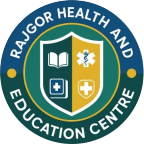Ayurvedic Massage and Panchakarma Therapy
Syllabus for Short Course: Ayurvedic Massage and Panchakarma Therapy
Duration: 6 Months
Institution: Rajgor Health and Education Centre, Affiliated with Guru Kashi University
This course offers comprehensive knowledge and practical skills in Ayurvedic massage techniques and Panchakarma therapies. Students will learn the principles of Ayurveda, therapeutic massage, and detoxification procedures essential for holistic healing.
Course Structure
Module 1: Foundations of Ayurveda
- Introduction to Ayurveda
- Historical background and philosophy
- The concept of health and wellness in Ayurveda
- Basic Principles
- The three doshas: Vata, Pitta, and Kapha
- Understanding prakriti (body constitution) and vikriti (imbalances)
- Ayurvedic Anatomy and Physiology
- Concept of srotas (channels) and dhatus (tissues)
- Agni (digestive fire) and ama (toxins)
Module 2: Ayurvedic Massage Techniques
- Introduction to Ayurvedic Massage
- Benefits of Ayurvedic massage for physical and mental health
- Oils and herbs used in massage therapy
- Practical Techniques
- Abhyanga: Full-body oil massage techniques
- Shirodhara: Oil pouring on the forehead for mental relaxation
- Marma Therapy: Working with vital energy points
- Customizing Massage
- Adapting techniques for different doshas
- Selecting appropriate oils and herbs for specific conditions
Module 3: Fundamentals of Panchakarma Therapy
- Introduction to Panchakarma
- Concept and importance of detoxification in Ayurveda
- Overview of the five cleansing therapies
- Preparation for Panchakarma
- Purva Karma: Preparatory procedures (Snehana and Swedana)
- Dietary guidelines during Panchakarma
Module 4: The Five Panchakarma Therapies
- Vamana (Therapeutic Emesis)
- Indications and contraindications
- Process and benefits of controlled vomiting therapy
- Virechana (Purgation Therapy)
- Techniques for cleansing the gastrointestinal tract
- Herbs and preparations used in purgation
- Basti (Medicated Enemas)
- Types of Basti: Anuvasana and Niruha
- Role of enemas in balancing Vata dosha
- Nasya (Nasal Cleansing)
- Administering medicated oils through the nostrils
- Benefits for respiratory and nervous systems
- Raktamokshana (Bloodletting)
- Techniques for purifying blood using leeches or other methods
- Applications in skin and blood-related disorders
Module 5: Practical Skills and Case Studies
- Hands-On Training
- Practice of Abhyanga, Shirodhara, and Marma therapy
- Demonstration and practice of Panchakarma procedures
- Case Studies
- Analyzing client conditions and designing appropriate therapies
- Monitoring and documenting therapy outcomes
Module 6: Post-Therapy Care and Maintenance
- Rejuvenation and Rasayana
- Herbal and dietary practices for post-therapy care
- Strengthening the body and mind after detoxification
- Lifestyle Recommendations
- Dinacharya (daily routines) and Ritucharya (seasonal regimens)
- Maintaining balance and preventing future imbalances
Practical Components
- Massage Training Workshops
- Individual and group practice sessions
- Use of Ayurvedic oils and herbs in therapy
- Panchakarma Procedures
- Hands-on training under supervision
- Simulated case scenarios for real-world application
- Project Work
- Developing a complete Ayurvedic wellness plan for a client
- Presentation and assessment of the project
Assessment and Certification
- Practical Examination: Demonstration of massage and Panchakarma techniques.
- Written Examination: Testing theoretical understanding of Ayurvedic principles and therapies.
- Final Project Presentation: Evaluation of the designed Ayurvedic wellness plan.
Upon successful completion, participants will receive a Certificate in Ayurvedic Massage and Panchakarma Therapy, equipping them to apply their knowledge professionally or personally in holistic wellness practices.

.jpg)
.jpg)
.jpg)
.jpg)
.jpg)
.jpg)
.jpg)
.jpg)
.jpg)
.jpg)
.jpg)
.jpg)